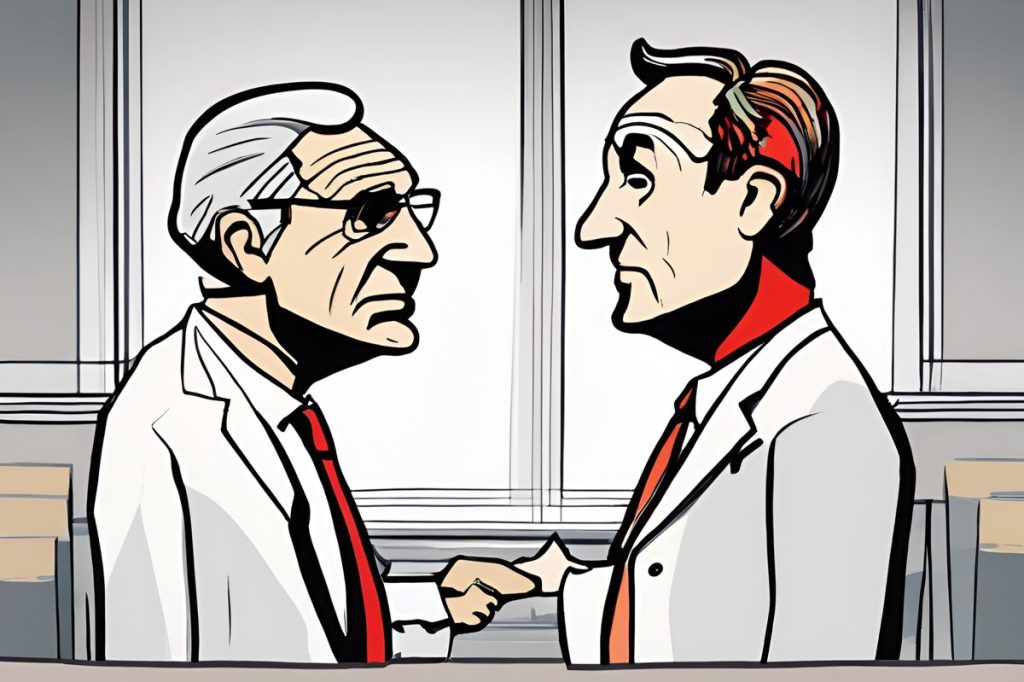Erhan Arikli, the transport minister, accused Ceyhun Birinci, a CTP MP in Cyprus, of racism after a heated exchange about identity in parliament. The confrontation sheds light on deeper issues of belonging and racism in a country with a divided past, sparking broader discussions on unity and acceptance.
What sparked the recent political tensions between Erhan Arikli and Ceyhun Birinci in Cyprus?
Political tensions escalated when Erhan Arikli, the transport minister, labeled Ceyhun Birinci, a Communal Democracy Party (CTP) MP, as racist following a personal inquiry about Arikli’s identity in Cyprus. This confrontation in parliament highlighted broader issues of identity, belonging, and racism in a country with a divided history.
Political Tensions Rise in Parliament
The political scene in the north has been charged with tension as Erhan Arikli, the transport minister, made a bold accusation against a member of the opposition party. Arikli’s fiery statement on social media targeted Ceyhun Birinci, an ‘MP’ from the Communal Democracy Party (CTP), branding him as a racist. This outburst stems from a heated exchange in ‘parliament’ where Birinci’s questioning of Arikli’s identity in the country sparked controversy.
The altercation escalated when Birinci inquired bluntly, “who the hell are you in this country?” The question was pointed and personal, digging into Arikli’s origins and his place in the political landscape. Arikli, born in Ardahan, Turkey, and a resident of Cyprus since the age of 13, took to Facebook to express his rebuttal. His response was a declaration of equality, emphasizing that despite their diverse backgrounds, they both hold equal constitutional rights and citizenship in their nation.
A Clash of Identities
The exchange between Arikli and Birinci opened a larger dialogue about identity and belonging in a country with a complex history of division. Arikli’s move to Cyprus in 1975, post the Turkish invasion, marks a narrative familiar to many who relocated during that turbulent period. His statement, “We are citizens of this country with equal rights to you,” resonates with an assertion of belonging that transcends the place of birth.
Arikli’s stance is more than a personal defense; it is an emblematic stand against what he perceives as underlying racism. His call-out to Birinci, “You will swallow the fact we exist,” is a powerful acknowledgment of the diverse make-up of the country’s population. The minister’s plea for the eradication of racism is a testament to the ongoing struggle for unity and acceptance in a land with a deeply divided past.
Dispute Beyond Parliamentary Decorum
The spat between Arikli and Birinci is not an isolated event but rather part of a series of confrontations involving Arikli and the CTP. Notably, Arikli has been engaged in a public quarrel with Tufan Erhurman, the leader of the CTP. The origins of their dispute can be traced back to a financial controversy involving a significant tax concession to the operators of Ercan (Tymbou) airport, a topic brought up by Erhurman.
The disagreements have spilled over into various public arenas, including social media and ‘parliament’. Erhurman’s critique of Arikli as “unserious” and Arikli’s comeback labeling Erhurman a “showman” suggest a clash that goes beyond policy disagreements into personal jibes. The parliament witnessed further exchanges, with remarks about decorum and language used in the chamber, pointing to a broader discourse on political civility and responsibility.
Persistent Disputes and Calls for Responsibility
The narrative continues unfolding, with public figures calling for a change in behavior and approach. Erhurman’s appeal to Arikli to abandon his detrimental conduct and take up responsibility reflects a wider expectation of politicians to serve as examples of integrity and respectability. While the dispute drags on, it highlights the intricate balance between personal convictions and public service. It also draws attention to the need for political leaders to navigate the fine line between robust debate and maintaining the dignity of their offices.
These incidents underscore a political environment where debates can quickly become personal and contentious. As this drama plays out in the public eye, it serves as a microcosm of the broader challenges facing the government’s coalition. The dynamics within this complex political landscape continue to evolve, with each player vying for influence and control over the narrative.
What sparked the recent political tensions between Erhan Arikli and Ceyhun Birinci in Cyprus?
Political tensions escalated when Erhan Arikli, the transport minister, labeled Ceyhun Birinci, a Communal Democracy Party (CTP) MP, as racist following a personal inquiry about Arikli’s identity in Cyprus. This confrontation in parliament highlighted broader issues of identity, belonging, and racism in a country with a divided history.
What are the underlying issues of identity and racism highlighted in the confrontation between Arikli and Birinci?
The exchange between Arikli and Birinci sheds light on deeper issues of belonging and racism in a country with a divided past. Arikli’s response emphasized equality and citizenship rights, while also addressing the diverse population of the nation. The confrontation sparked broader discussions on unity and acceptance in Cyprus.
How has the political landscape in North Cyprus been affected by the disputes involving Arikli and the CTP?
The disputes involving Arikli and the CTP have created tensions within the political landscape of North Cyprus. The confrontations, not only with Birinci but also with Tufan Erhurman, the leader of the CTP, have transcended policy disagreements to personal jibes. The incidents have raised questions about political civility and the responsibility of public figures.
What calls for action and responsibility have emerged from the ongoing disputes in Cyprus?
Public figures have called for a change in behavior and approach from politicians like Arikli, urging them to take up responsibility and exhibit integrity and respectability. The disputes highlight the challenges of balancing personal convictions with public service, emphasizing the need for political leaders to maintain dignity while engaging in robust debate.

